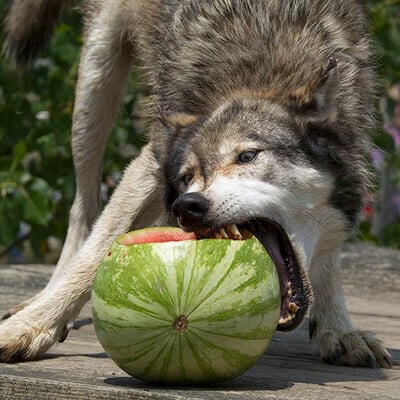Bananas are ridiculously cheap even up here in Canada, and they aren’t grown anywhere near here. Yet a banana can grow, be harvested, be shipped, be stocked, and then be purchased by me for less than it’d cost to mail a letter across town. (Well, if I could buy a single banana maybe…or maybe that’s not the best comparison, but I think you get my point)
Along the banana’s journey, the farmer, the harvester, the shipper, the grocer, the clerk, and the cashier all (presumably) get paid. Yet a single banana is mere cents. If you didn’t know any better, you might think a single banana should cost $10!
I’m presuming that this is because of some sort of exploitation somewhere down the line, or possibly loss-leading on the grocery store’s side of things.
I’m wondering what other products like bananas are a lot cheaper than they “should” be (e.g., based on how far they have to travel, or how difficult they are to produce, or how much money we’re saving “unethically”).
I’ve heard that this applies to coffee and chocolate to varying extents, but I’m not certain.
Anyone know any others?
imo I don’t think there is any food item costs less than it should
edit: I’m speaking as a person who is broke and I buy microwave meals because I don’t have time, money or energy to make/eat other stuff
Pretty much all food. I can work for 5 minutes and buy 700 Calories’ worth of trail mix. My work consists of walking around a climate controlled room answering questions about things people are buying.
This means that with 15 minutes per day of effort, I get a diet more consistent than my ancestors could get with six hours of work per day.
Food is ridiculously cheap around me.
Bananas happen to be very productive plants. One banana plant produces hundreds of bananas. The further lowering of the cost comes from economy of scale and fucking over workers and nature.
Almost anything at Costco.
Nice try, Davos
Surprised nobody said meat yet. Current prices are only possible through gigantic subsidies and the blatant disregard for even the most basic of animal wellbeing and that’s not even starting to factor in the environmental and climate damage meat production ensues.
I agree with you but there are more ethical ways to eat meat while also saving money. Last year my wife and I purchased 1/4 of an entire cow from a farm about 35 miles north of us (friends and family bought the other 3/4). This cow was responsibly raised, grass fed, on a small, local farm. We received 200 pounds of meat with probably a dozen different cuts of meat. This includes dozens of pounds of excellent steak and the meat is simply amazing. We will definitely be going this route moving forward as we averaged the price per pound to ~$4/lb which is far less than the local grocery.
I understand this isn’t possible for everyone as we also had to purchase a chest freezer which requires space but has made our grocery bill far smaller and the meat we are eating much better in many ways.
Even if the cow is responsibly raised, there’s still the question of how it was conceived. No farmer simply let’s a bull on top of a cow, since our modern cows are too big to safely mate. So usually a cow is artificially inseminated, which is an inherently violent procedure. The milk industry could simply not exist without this institutionalized rape
As you said, they can’t mate… so what’s your solution? Let them go extinct and we lose not only a beautiful creature but a significant part of our species food source and history? We’ve been drinking milk and eating beef since the dawn of animal husbandry
Wait you’re saying it’s better to be genetically experimented on, caged, forced to breed, and be killed in your early adulthood than not have children?
That’s it’s actually more ethical to make a creature who you later kill for your own pleasure than not to do that? because the alternative is only wild cows and cowlike creatures existing?
They’re living beings, not museum exhibits ffs. Species don’t have preferences, individuals do.
Point out the wild bovine to me bruh, they don’t exist, they’re one of the many species dépendant upon humans for their survival.
Ummm. Are you serious?
this reads like an appeal to ridicule, not a rebuttal
>it’s better to… breed…than not have children?
the highest benefit to any organism is to pass it’s genetic material to another generation.
benefit for whom?
for the DNA
they didn’t say any of what you said.
you are arguing with a strawman.
That’s what a farm is. They’re saying we should keep farming them or else they would go extinct and that would be worse than continuing to farm them.
they did not say what you said. you are putting words in their mouth.
>it’s actually more ethical to make a creature who you later kill for your own pleasure
no one is doing that
What is meat farming? in most of the world at this point in time it’s much more efficient to eat plants. Nobody with access to a supermarket is eating only what meat they might need to survive with no alternatives, you eat it for pleasure. For this pleasure someone must die, therefore you kill them for pleasure.
if you are buying food in a supermarket your not killing anything except maybe lobsters
you literally don’t know what anyone else needs. you can’t dictate the diet that is right for them.
artificial insemination isn’t rape. it’s a veterinary procedure
If I artificially inseminated you would you feel raped?
I’m not a cow and I somehow doubt you are a veterinarian
So it would be abhorrent right? What makes it ok to do to a cow then? Is it the prop stethoscope? the certificate of graduation on the wall? Do cows just not matter? if so why not?
cows aren’t people.
Yeah, I’ve been making efforts to reduce meat from my diet for plenty of reasons. But I enjoy the taste, so I’m excited for lab-grown meat!
There will be too much pushback for that to make an impact in a hurry.
The most exciting one is plant based eggs and milk, because a LOT of people who wont buy a lab grown steak also wont read the back of the box of cookies to see of it uses real milk and eggs. Mass produced processed foods will use the shit out of it if its cheaper.
I loved the taste of meat and it kept me from quitting for years, and I will say that I don’t miss it nearly as much as I thought I would.
Dry beans. A $2 bag makes a massive pot.
But when you think about it, beans should be cheaper than meat or something. Yeah a bag makes a whole bunch of beans but it’s straight ground to plate vs feeding a cow from birth. In fact relatively speaking of seems like the bean to cow cost ratio is out of proportion, the beans should be cheaper or the cow should be more.
Right but consider the work involved in gathering a pound of beans. One can get beans for far less work than that.
Like everything made in China.
A shirt that costs $8? Board game that costs $20?
To be fair, banana are only cheap in North America compared to the cost of other fruits. Bananas are pretty expensive if you consider you can get around 8-10 for a dollar in places where they are local.
I can get 4 for a dollar where I live in the States
beef, corn, and almonds
beef takes up an incredible amount of land and water per ‘unit’ nutrition and has a profound impact on the local and global environment. it has an artificially low cost due to subsidies and cheap grain (corn) feed.
feed corn isnt really consumable by humans and takes a large percentage of land. its price is kept low by subsidies.
almonds take a lot of water to grow and are commonly grown in regions where water is scarce and is provided to farmers for little to no monetary cost with few restrictions
Where are you that almonds are cheap?
i never said they were, lol
The United States subsidizes the hell out of dairy products. Dairy (and by extension, beef) is way, way cheaper than it should be.
I was always wonder how the heck did beef and milk are so cheap in US. I live in south Asia btw. Our income and wages are dog shit compared to the USA, yet our (normal) beef cost US$15 per kilo (the “good stuffs” could cost up to US$25 per kilo).
For anyone curious about this, go google “cheese caves”. The US government has massive caverns full of cheese. The government keeps buying cheese to subsidize the dairy industry, and ensure they keep enough dairy cows around.
But this also means they have a metric fuckload of cheese, and no way to get rid of it. They can’t just give it away to the public or sell it at cost, because that would crash the price, which would harm the farmers, which would defeat the entire purpose of the subsidy in the first place. So they just lock it in a cave. The government has entire caves that are just packed full of cheese. It’ll never be eaten, and is simply left there to age.
I believe one of the biggest reasons for even keeping the cheese around at all (instead of just doing something like tossing it into a volcano) is so they can use it as a strategic food reserve during war or famine. If, for instance, the government suddenly needs to feed a much larger army, it can start tapping into that massive food reserve simply by opening the cheese caves and pulling out the (now very aged) cheese. But that’s a very large “what if”. Or maybe there’s some big disease that wipes out the majority of the dairy cows. The government would be able to keep shelves stocked while farmers work on replenishing their herds.
Isn’t there the thing where the cheese needs to age by just sitting there, the farmer needs cash flow, so the cheese is put up as collateral. (But yes there is government cheese too.)
Government cheese is called that for a reason. Anyways I totally agree with you but it’s interesting so I’m just providing a link for anyone who is interested in learning more.
Government cheese is a commodity cheese that was controlled by the US federal government from World War II to the early 1980s. Government cheese was created to maintain the price of dairy when dairy industry subsidies artificially increased the supply of milk and created a surplus of milk that was then converted into cheese, butter, or powdered milk. The cheese, along with the butter and dehydrated milk powder, was stored in over 150 warehouses across 35 states.
Ramen always surprises me by how it remains consistently cheap
Yeah it’s cheap, but I miss when it was $0.10/pack cheap, cheaper than dirt.
Rice. A 20lb bag can provide 70% of your food volume for a month and costs like $10. Easily the best poverty food hack there is.
Unfortunately a lot of rice is contaminated with arsenic due to pesticides. The only way to remove the arsenic also removes most of its nutrients. So you might be better off going for a different grain like wheat, oats or barley.
Arsenic aside, rice is probably one of the best deals when you consider how long a bag can feed you.
As far as I know just cooking the rice with enough water solves the arsenic problem for the most part.
This is true for white rice. But using a lot of water also removes the vitamin fortification and makes it less nutritious. So you are left with the dilemma or either eating the arsenic or losing the vitamins.
For brown rice, no amount of water can remove all the arsenic since a lot more of it is in the outer part of the grain. This is unfortunate because in all other respects brown rice is the healthier option.
Also, some regional varieties of rice have less arsenic than others. Basically avoid rice grown in any country that uses or has ever used arsenic based pesticides. Even then, the rice will have a little arsenic since it is a naturally occurring mineral.
That is good to know, thank you 🙂.
Does water count? It’s the first thing that always comes to mind for me. I’m certainly not complaining, but it amazes me that, no matter where you go, water, even clean water, is universally free. It’s certainly not unlimited.
That does depend on where you are in the world. Even in North America, not everyone can just turn on a tap.
As well, it’s generally our tax dollars that go to treating and supplying it. So we do pay for it.
That said, you’re absolutely right. It’s my favourite thing to drink, and it probably wouldn’t be if I had to pay for every glass! Lol
Our tax dollars pay for it because a significant portion of the population is dead inside a week if the tap water stops or becomes unsafe. The government takes care of it because the populace can’t be trusted to take care of themselves lol
So as you said, it’s not free really, but there’s a really good reason for that












